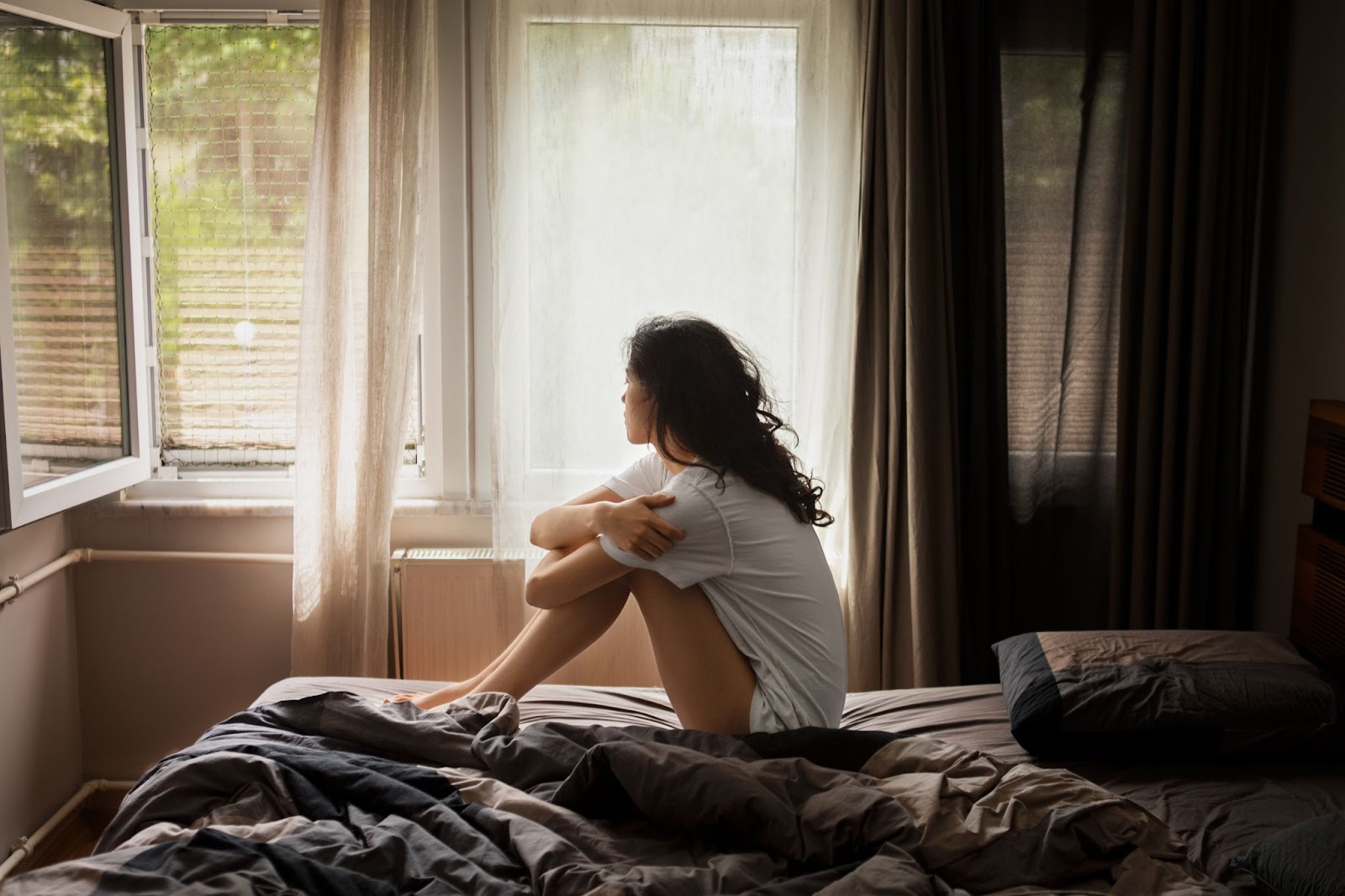Anxiety and sleep disorders frequently coexist, creating a bidirectional relationship where each condition can influence the other. Anxiety, characterized by feelings of worry or fear, can disrupt normal sleep patterns. Understanding this interconnected cycle is a component of managing both conditions. Here is more information on how anxiety affects sleep, how sleep disorders impact anxiety, and strategies for managing this relationship:
Linking Anxiety and Sleep Disorders
Anxiety can interfere with the body’s ability to fall asleep and stay asleep. This occurs because anxiety activates the body’s stress response system, leading to a state of hyperarousal. This physiological state is characterized by an elevated heart rate, increased muscle tension, and racing thoughts, which are all counterproductive to sleep initiation.
An individual experiencing anxiety may find it difficult to quiet their mind at night, replaying events from the day or worrying about future events. This mental activity keeps the brain alert and prevents the transition into deeper sleep stages. This can result in insomnia, which involves difficulty falling asleep, staying asleep, or experiencing non-restorative sleep. Over time, the bedroom itself can become associated with wakefulness and worry, further perpetuating the cycle.
Understanding the Impact
Sleep deprivation and sleep disorders can also intensify symptoms of anxiety. A lack of restorative sleep impairs the brain’s ability to process emotions and regulate mood. The amygdala, a region of the brain involved in the fear response, becomes more active with insufficient sleep. At the same time, activity in the prefrontal cortex, which helps manage emotional responses, is reduced. This imbalance can lead to a lower threshold for stress and an increased tendency to perceive situations as threatening. Consequently, a person who is sleep-deprived may experience heightened feelings of worry, nervousness, and irritability.
Managing Sleep Disorders
Managing the relationship between anxiety and sleep disorders involves strategies that address both conditions. One area of focus is sleep hygiene, which refers to habits and practices that are conducive to sleeping well on a regular basis. Some sleep hygiene practices include:
- Maintaining a consistent sleep-wake schedule, even on weekends.
- Creating a relaxing bedtime routine, such as reading a book or listening to calm music.
- Optimizing the sleep environment to be dark, quiet, and cool.
Another approach is the implementation of relaxation techniques. Practices like deep breathing exercises, progressive muscle relaxation, and mindfulness meditation might be beneficial. They help to calm the nervous system and reduce the state of hyperarousal associated with anxiety. These techniques can be practiced before bed to prepare the body for sleep or used during nighttime awakenings to help return to sleep.
Find a Psychiatrist
The relationship between anxiety and sleep disorders is complex and cyclical. Anxiety can lead to a state of hyperarousal that disrupts sleep, while poor sleep can amplify the brain’s emotional responses and worsen anxiety symptoms. This creates a self-perpetuating cycle that can be challenging to break. Managing this connection involves implementing consistent sleep hygiene practices and utilizing relaxation techniques to calm the mind and body. If you’re suffering from these conditions, consult with a qualified psychiatrist to see how they can help you.
- Choosing the Right Plastic Surgeon for Your Cosmetic Procedure
- Understanding Different Types of Laser Treatments for Skin Rejuvenation
- Why a Family Dentist is Key for Maintaining Oral Health
- The Benefits of Regular Visits to a Wellness Spa
- Exploring the Emotional and Psychological Triggers of Eating Disorders


Leave a Reply